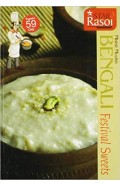- Home
- Non Fiction
- History
- Producing Palestine - The Creative Production of Palestine Through Contemporary Media
Producing Palestine - The Creative Production of Palestine Through Contemporary Media
By: Dina Matar
-
Rs 10,795.50
- Rs 11,995.00
- 10%
You save Rs 1,199.50.
Due to constant currency fluctuation, prices are subject to change with or without notice.
It offers sixteen ‘cases’ which collectively conceptualize, engage in, and invite readers to participate in the production of Palestine and its theorization. These cases cover a wide array of spaces of production such as poster art, TikTok, virtual technologies, digital mapping, drone footage, online cooking shows, documentaries, music videos and many more. Producing Palestine contends that representations of Palestine carry a multitude of meanings, that Palestine is continually produced and reproduced, dynamically generating new knowledge production across media, languages, temporalities, geographies and disciplines.
It offers sixteen ‘cases’ which collectively conceptualize, engage in, and invite readers to participate in the production of Palestine and its theorization. These cases cover a wide array of spaces of production such as poster art, TikTok, virtual technologies, digital mapping, drone footage, online cooking shows, documentaries, music videos and many more. Producing Palestine contends that representations of Palestine carry a multitude of meanings, that Palestine is continually produced and reproduced, dynamically generating new knowledge production across media, languages, temporalities, geographies and disciplines.
Producing Palestine - The Creative Production of Palestine Through Contemporary Media
By: Dina Matar
Rs 10,795.50 Rs 11,995.00 Ex Tax :Rs 10,795.50
Zubin Mehta: A Musical Journey (An Authorized Biography)
By: VOID - Bakhtiar K. Dadabhoy
Rs 892.50 Rs 1,050.00 Ex Tax :Rs 892.50
The Origins of Political Order From Prehuman Times to the French RevolutioN
By: Francis Fukuyama
Rs 4,045.50 Rs 4,495.00 Ex Tax :Rs 4,045.50
Manning Up: How the Rise of Women Has Turned Men into Boys
By: Kay Hymowitz
Rs 845.75 Rs 995.00 Ex Tax :Rs 845.75
The Obama Syndrome: Surrender At Home War Abroad
By: Tariq Ali
Rs 1,100.75 Rs 1,295.00 Ex Tax :Rs 1,100.75
The Quest For Meaning: Developing A Philosophy Of Pluralism
By: Tariq Ramadan
Rs 1,185.75 Rs 1,395.00 Ex Tax :Rs 1,185.75
No similar books from this author available at the moment.
What Kind of Liberation? - Women and the Occupation of Iraq
By: Nadje Al-Ali
Rs 1,508.75 Rs 1,775.00 Ex Tax :Rs 1,508.75
Zubin Mehta: A Musical Journey (An Authorized Biography)
By: VOID - Bakhtiar K. Dadabhoy
Rs 892.50 Rs 1,050.00 Ex Tax :Rs 892.50
Producing Palestine - The Creative Production of Palestine Through Contemporary Media
By: Dina Matar
Rs 10,795.50 Rs 11,995.00 Ex Tax :Rs 10,795.50














-120x187.jpg?q6)





-120x187.jpg?q6)








